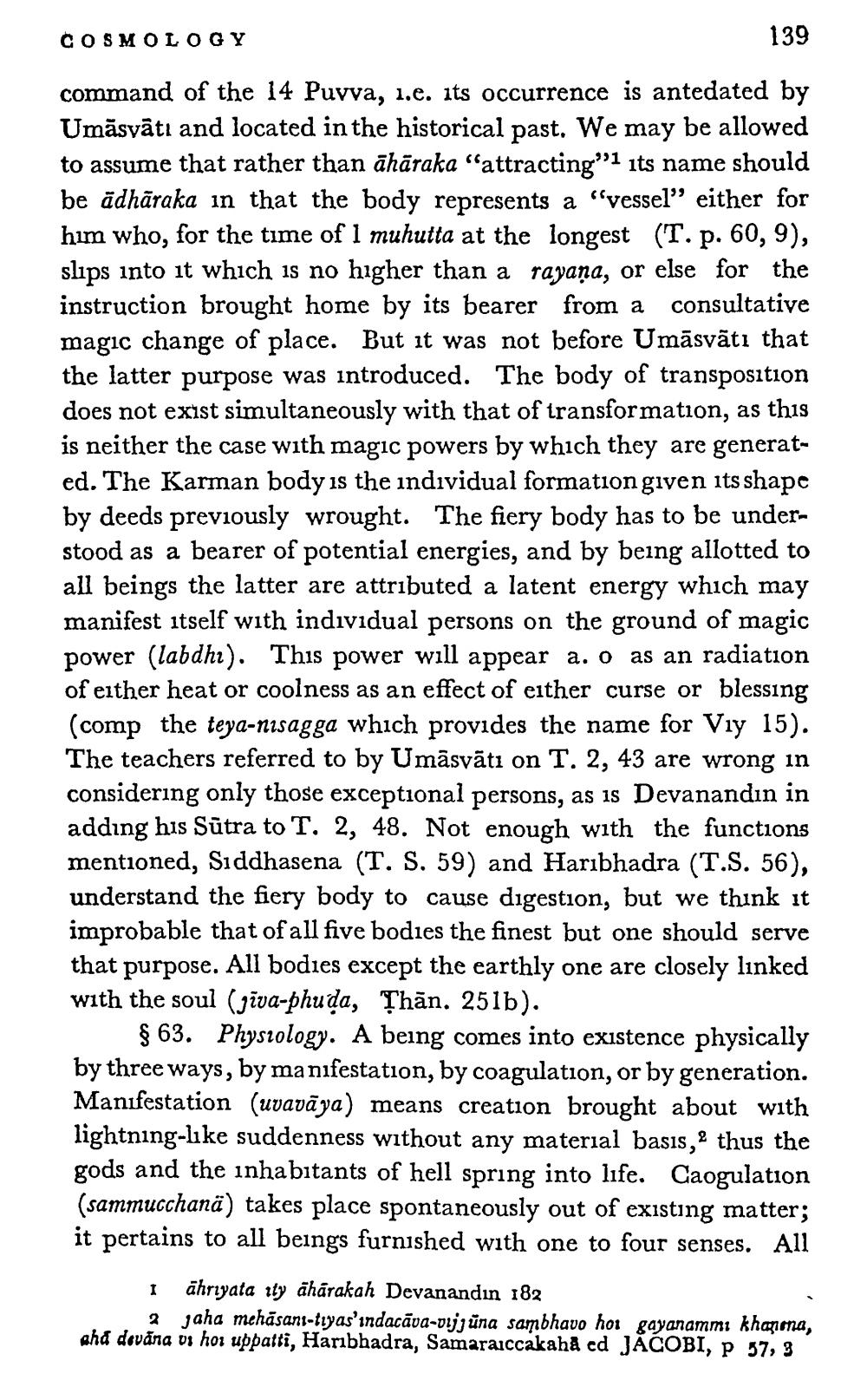________________
COSMOLOGY
139
command of the 14 Puvva, 1.e. its occurrence is antedated by Umāsyāti and located in the historical past. We may be allowed to assume that rather than āhāraka "attracting”'l its name should be ādhāraka in that the body represents a "vessel" either for him who, for the time of 1 muhutta at the longest (T. p. 60, 9), slips into it which is no higher than a rayaņa, or else for the instruction brought home by its bearer from a consultative magic change of place. But it was not before Umāsvāti that the latter purpose was introduced. The body of transposition does not exist simultaneously with that of transformation, as this is neither the case with magic powers by which they are generated. The Karman body is the individual formation given its shape by deeds previously wrought. The fiery body has to be understood as a bearer of potential energies, and by being allotted to all beings the latter are attributed a latent energy which may manifest itself with individual persons on the ground of magic power (labdhı). This power will appear a. o as an radiation of either heat or coolness as an effect of either curse or blessing (comp the teya-nisagga which provides the name for Viy 15). The teachers referred to by Umāsvātı on T. 2, 43 are wrong in considering only those exceptional persons, as is Devanandın in adding his Sūtra to T. 2, 48. Not enough with the functions mentioned, Sıddhasena (T. S. 59) and Haribhadra (T.S. 56), understand the fiery body to cause digestion, but we think it improbable that of all five bodies the finest but one should serve that purpose. All bodies except the earthly one are closely linked with the soul (jiva-phuda, Thān. 251b).
$63. Physiology. A being comes into existence physically by three ways, by manifestation, by coagulation, or by generation. Manifestation (uvavāya) means creation brought about with lightning-like suddenness without any material basis, 2 thus the gods and the inhabitants of hell spring into life. Caogulation (sammucchanä) takes place spontaneously out of existing matter; it pertains to all beings furnished with one to four senses. All
1 āhriyata zły ahārakah Devanandın 182
2 jaha mehāsani-tryas'ındacāva-Dujjuna sambhavo hoi gayanammi khama, and devāna ui hoi ubpatti, Haribhadra, Samaraiccakahå cd JACOBI, p 57, 3




